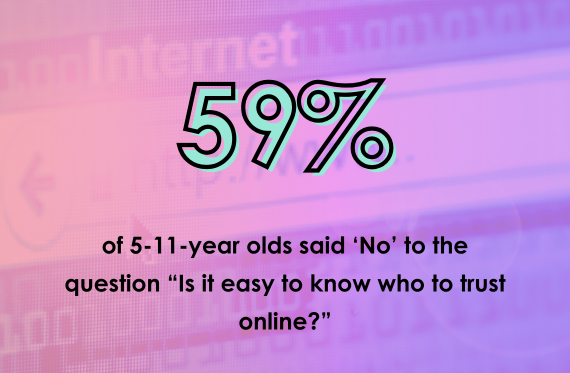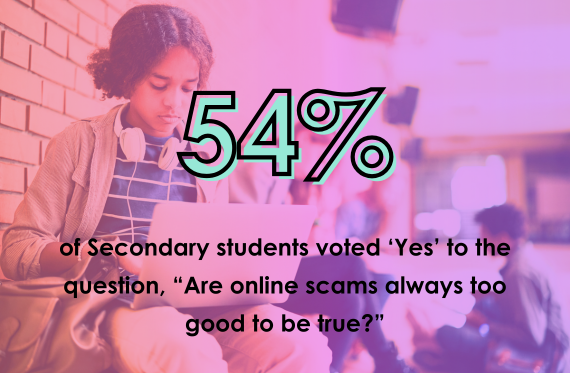5-11 votes
11-16+ votes
Total votes
For Safer Internet Day, over 50,000 young people discussed its theme, “Too good to be true? Protecting yourself and others from scams online.” In their VotesforSchools lessons, Primary pupils explored green and red flags for building relationships online, while older voters discussed some of the most common online scams, and built critical awareness of signs to look out for.
Secondary, 16+ & College voters were asked: “Are online scams always too good to be true?”, while Primary 5-11 voters discussed: “Is it easy to know who to trust online?”
51,128 young people in the UK have taken part in this vote.

"I would say no because people could disguise themselves as my friend or family member like my mum. They could try to get my address and try scamming me.”

"Nothing that sounds that good is likely to be true. If on the off chance that it could be true, it's not really worth the risk. Sometimes scams can come from someone you think you know but that person may have been hacked or it could be a fake account in their name."

"As young people we do not feel that we are targeted by scammers in the same way that adults are. We also feel we have more awareness of how online scams exist and operate than lots of older adults do."
Thank you to Childnet for responding to young people's voices on this VoteTopic!


